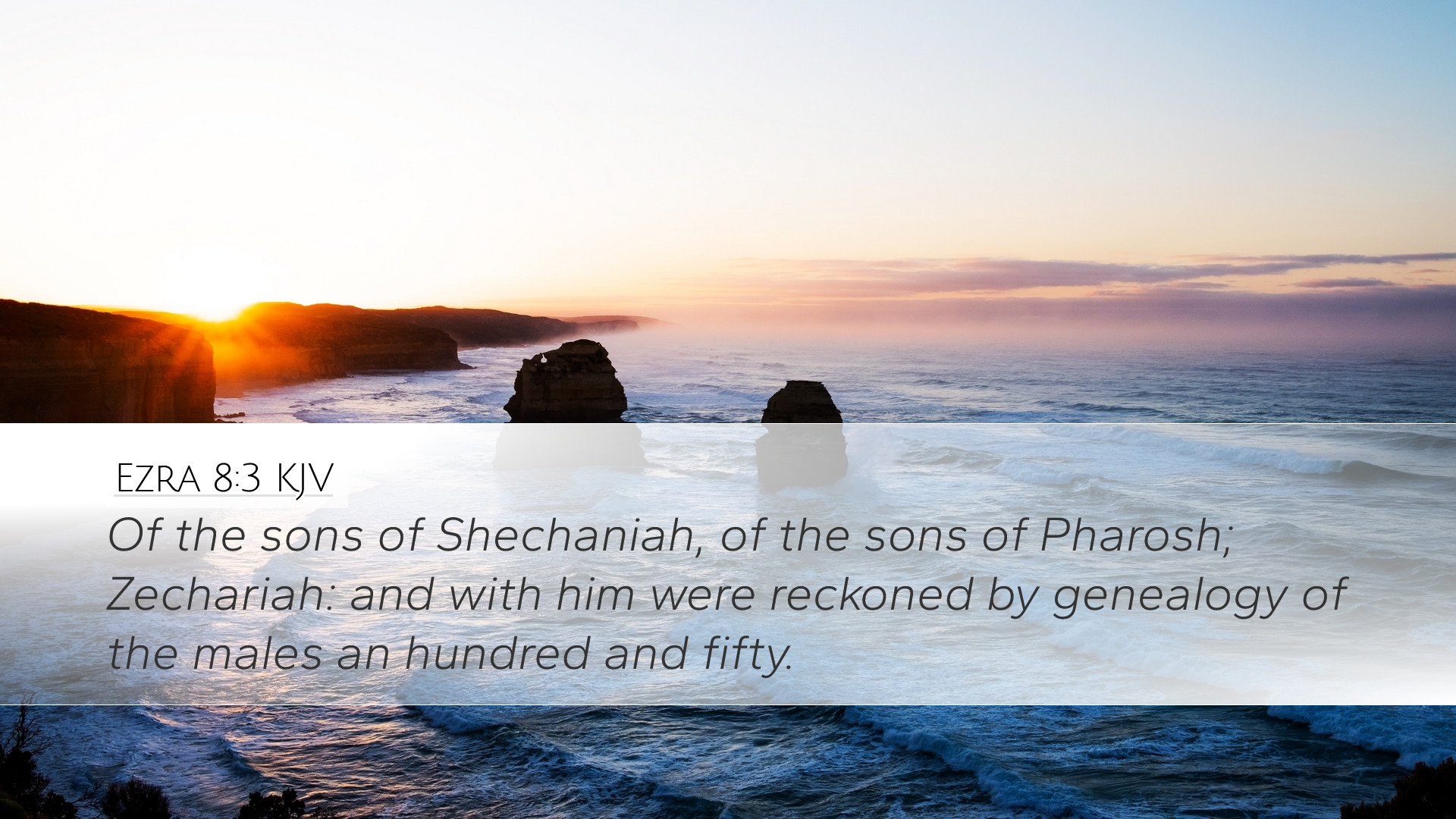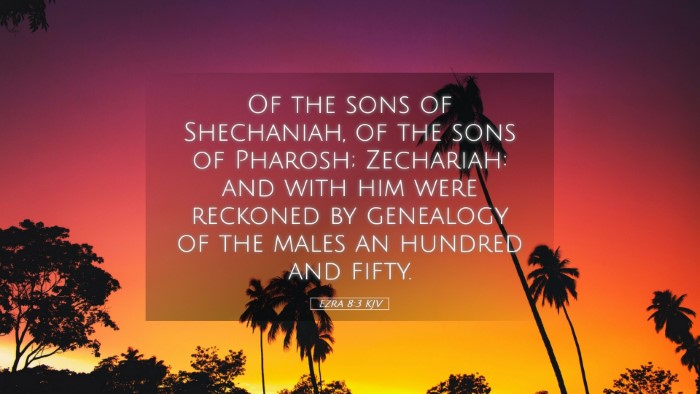Commentary on Ezra 8:3
Ezra 8:3 states: "Of the sons of Shecaniah; the son of Jahaziel; and with him were hundred and fifty males." This passage details a specific lineage among those who returned from Babylonian exile, emphasizing the importance of heritage and leadership in the restoration of worship in Jerusalem.
Background Context
The return of the exiles under Ezra occurred in the seventh century BC after the Babylonian captivity. This moment was pivotal for the Jewish people, representing not just a physical return to their homeland, but also a spiritual revival and a renewal of their covenant relationship with God.
Insights from Public Domain Commentaries
Matthew Henry
Henry notes that the genealogy outlined in this and surrounding verses is significant as it asserts the divine order in which He restores His people. Every name represents not only a family but also a part of the larger narrative of God’s faithfulness to Israel. He emphasizes that the mention of males indicates readiness for service and leadership in the return and re-establishment of the temple worship.
Albert Barnes
Barnes elaborates on the role of Shecaniah in the lineage, pointing out that his name suggests a connection to God’s grace. He interprets the count of "hundred and fifty males" as a testimony to God’s provision and the reliability of His promises. The mention of specific numbers can also symbolize completeness, further underscoring God's meticulous orchestration of the return. Barnes implies that these details are not mere statistics but signify a fulfilling of God’s covenants with Israel.
Adam Clarke
Clarke provides a detailed historical analysis of the names and their meanings, positing that this enumeration is reflective of how God values individuality within the collective returning exiles. Each person named contributed to the larger purpose of restoring the community. He stresses the commitment of those who returned and their readiness to engage in the reforms necessary to re-establish the worship of Yahweh in Jerusalem.
Theological Implications
- Importance of Lineage: The genealogies highlight the importance of lineage in the Jewish tradition. They serve to connect the present community with their ancestral heritage, emphasizing the continuity of God’s people through history.
- Divine Providence: Each individual mentioned illustrates God's providence in organizing the return of His people. It is a reminder that God continues to fulfill His promises, guiding His people even in times of great turmoil and restoration.
- Unity in Purpose: The reference to specific families and numbers suggests a united effort among the people. For contemporary readers, this can be a call to unity in purpose as they engage in their own community-building efforts within the Church.
Application for Pastors and Theologians
This passage can serve as an encouragement for pastors to recognize the significance of their congregations' heritage and the individuals that comprise them. Understanding the role each member plays in the church's mission can enhance community engagement and strengthen collective worship.
The genealogical lists found in Ezra are not just historical records but theological affirmations. Pastors may draw parallels to how the church today is built on the foundations laid by previous generations of believers. The importance of teaching church members about their spiritual heritage can foster a deeper appreciation for their role within the larger body of Christ.
Conclusion
Even in a seemingly simple verse like Ezra 8:3, there exists a profound depth of meaning. It teaches us about our identity as God's people, encourages remembrance of God's past faithfulness, and urges us towards active participation in His redemptive work among us today. As we reflect on these themes, may we be inspired to commit ourselves to the rebuilding of our own communities in faith, unity, and purpose.


